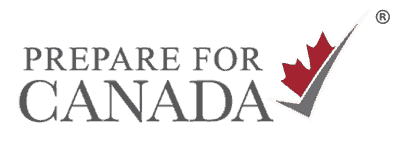BANKING & FINANCE
Money management tips for newcomers to Canada
by | Oct 15, 2024

Whether you have recently immigrated to Canada, or you’re an international student these money management tips will help you build a foundation for financial success. From opening a bank account to filing your first income tax return, discover why these money tips for newcomers are important. Learn how you can carefully manage your money, especially during your first few months in Canada!
Top 10 money management tips for newcomers
1. Get a Social Insurance Number
Obtaining a Social Insurance Number (SIN) is one of the first money management steps to take when you arrive in Canada. A SIN is vital because it allows you to work in Canada. Your SIN also gives you access to government programs and financial benefits that serve to put money back in your pocket. Ideally, you should apply for your SIN within your first week of arriving in Canada.
Your SIN is confidential and you need to carefully protect it to avoid things like identity theft and financial fraud.
2. Open a bank account
Opening a bank account at a local bank will allow you to manage your finances better and avoid significant transfer fees from your accounts back home. Pick a bank close to your home or work for convenience, and, it is a good idea to set up online banking as well.
You can open chequing and savings accounts immediately and walk away with a debit card.
3. Get a credit card
Credit is an essential part of your financial success in Canada. You will need a good credit history to get a loan or a mortgage, and sometimes to rent a home or obtain a job. With a good credit history, you may be able to obtain lower interest rates on loans for large purchases such as buying a car, or your first home in Canada. Lower interest rates can save you thousands of dollars over the term of the loan.
Getting a credit card in Canada requires either a previous credit history or a deposit that will protect the lender in case you fail to pay your bill. This is also known as a secured credit card. A credit card may also come with incentives such as travel rewards, cash back on purchases, air miles, or a welcome bonus for newcomers. However, you’ll still have to practice good money management habits with a credit card. Things like charging more than 30% of your credit limit can damage your credit score and work against you financially.
4. Apply for health insurance
You can apply for provincial health insurance for yourself and your family as soon as you arrive. Application forms are available at immigrant settlement agencies, doctor’s offices, hospitals, and pharmacies. In some provinces such as British Columbia, Quebec, and New Brunswick, you may have to wait up to three months before you can access the provincial health insurance plan. During the waiting period, you may want to purchase private health insurance to protect yourself from unexpected medical expenses. Learn more about insurance for newcomers in Canada.
Arrive in Canada Financially Prepared
Building a strong financial foundation is vital to your success. Join this webinar to start your banking journey in Canada on the right foot!

5. File an Income Tax Return
If you live in Canada for even a short portion of the current tax year, it’s vital to file an income tax return. Doing so will allow you to access benefits that put money back in your pocket. For example, you may be eligible for the Canada Child Benefit, the Goods and Service Tax (GST) benefit, and many other benefits. If you need help filing your first income tax return, settlement agencies can help you get started.
6. Assess your monthly expenses
A vital money management tip, especially during your first few months in Canada, is to assess your monthly expenses and spend wisely. Until you find a full-time job, your finances will be unstable. While exploring your new city, take a tour of the nearby supermarkets to get an idea of prices for basic items. Also, be sure to locate discount supermarkets for cost savings that can help you manage your money.
Compare different cell phone and internet provider plans and special offers. And, be sure you understand any contract requirements before you sign it. Ask the provider to explain unclear details and do not feel pressure to sign the contract until you are ready.
There are several free online budget trackers, such as this money finder calculator to help with money management.
7. Make a budget to help with money management
No doubt, you researched living costs before you arrived in Canada. But, when in Canada, you’ll know the actual costs of rent, utilities, insurance, and other expenses. A budget that tracks your income and expenses will identify where you are spending your money and give you greater financial control. Your rent is likely to be the largest portion of your monthly budget.
8. Access lost-cost and free goods and services to manage your money
While it is tempting to start your new life with shiny new items, it is not always financially smart. Visit free websites such as Kijiji.ca or Facebook Marketplace for free or low-cost items. Immigrant settlement organizations can direct you to places where you can access furniture donations. In large buildings, renters who move out often place ads to sell their furniture at affordable prices.
Checking out garage sales and yard sales is a national pastime in Canada! This cost-saving money tip can save you money on household items and other goods. Also, library cards are free and allow you to borrow books and save on entertainment. Everywhere you look, you’ll find opportunities to manage your money and reduce costs, you just need to take advantage of them.
9. Shop wisely with these money tips

Get into the habit of shopping wisely! Use coupons, avoid customer traps such as extended warranties, apply for customer loyalty cards at major stores, and resist the lure of special offers on items you don’t need. Explore neighbourhood produce and butcher shops because sometimes they offer lower prices.
10. Shake off bad money management habits
Often, newcomers experience a state of excitement similar to that of tourists on holiday. While it is fine to enjoy your first weeks in Canada, the reality is that you are not on holiday, so avoid spending like you are. A new start in Canada is a great chance to develop good money management habits and get rid of bad ones. Whether it’s sticking to a budget, or paying your bills on time, now’s the time to start fresh and manage your money wisely.
These financial tips will help you manage your money, lower stress, and build a strong financial foundation in Canada.
Related articles
Read more about banking and financing with Prepare for Canada.





